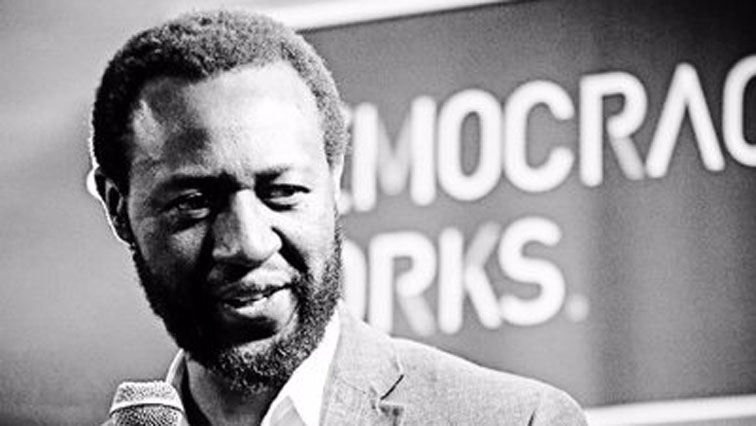By William Gumede
There is a real danger that the new technological revolution, which has been called the Fourth Industrial Revolution and which is integrating the digital, physical, and biological worlds, will leave Africa behind, never to catch up in perpetuity.
The Fourth Industrial Revolution is described by Klaus Schwab, the founder of the World Economic Forum, as anything from artificial intelligence, machine intelligence and networked devices; to the use of information technology and electronics to automate production, manufacturing becoming digital, and gene editing.
These will result in anything from self-driving cars to software that writes media articles and makes investment decisions. The Associated Press is using Artificial Intelligence software to write company results. IBM announced it had built a computer that can diagnose cancer more effectively than human doctors.
The Economist magazine described the replacement of old materials with new ones, such as carbon fibre replacing steel and aluminium, and the application of 3D printing, to reproduce anything from tools to spare parts, or nanotechnology, which give products new features, such as bandages that help heal wounds.
The First Industrial Revolution took off in the late 18th century in Britain, in the textile industry when steam and water power was harnessed for mechanical production, and the factory replaced tasks previously completed by separate individuals by hand. The Second Industrial Revolution was the use of electric power for mass production starting in the late 1800s, and the introduction of the assembly line by Henry Ford, followed by The Third Industrial Revolution with the birth of the computer age.
African countries are among the least prepared for the Fourth Industrial Revolution. There is a real danger that the impact of technology on the global labour market could increase current inequality between African countries on the one hand, and industrial and emerging markets, on the other.
Africa’s infrastructure is the least developed. Most of Africa’s workforce is unskilled. Since the more than a half-century since independence from colonialism, most African countries have never had even a rudimentary industrialisation strategy, to lift them from colonial underdevelopment to industrial growth. Up till today, most still don’t have this.
If Africa’s higher education institutions are not collapsing, they are stuck in pre-digital age curricula, or over-focusing on outdated aspects of the humanities, rather than technical skills, engineering and sciences.
Africa’s leaders are among the least aware of the dramatic technological changes and their potential impact on countries. Many are there simply to enrich themselves, their families and allies. Most of their attitudes, perceptions and engagements with the world are frozen in the immediate post-colonial political, economic and ideological paradigms.
Some are still building their dreams on the ultimately, false hope, that former colonial powers will be altruistic towards Africa following their past plunder of the continent– which will then magically catapult African economies into the Fourth Industrial Revolution. Others are waiting on emerging powers, such as China or Saudi Arabia, to lift Africa from under-development.
Sadly, most of Africa’s thinking elite in business, civil society, traditional authorities and academia are similarly stuck in a time-warp. Some argue to just nationalise mineral resources, the land and foreign assets – without making proposals on just how, different entities in a new wave of state ownership, are not going to repeat the disastrous way in which African state-owned companies in the immediate post-independence period have been managed.
Some Africans wrongly imagine that the West or new emerging powers such as China are entirely “dependent” on African resources. Equally naïve, others call nostalgically for a supposedly ancient African “communal” economy. Others again believe that a communist nirvana is just around the corner.
Africa’s energy supplies, metals and commodities may become obsolete, as the Fourth Industrial Revolution develops new replacement materials faster than current efforts to do so, which is happening in both industrial countries and emerging powers.
Most of the recent research on the impact of the Fourth Industrial Revolution shows that Africa is so unprepared, it will be the worst off. Africa’s growth model of attracting investment because of its low wages and low-skills may lose its competitive advantage, in a world where manufacturing will become more digital. Africa’s necessary push to growth through agriculture – because of its available land and low-skills are now, also in danger.
An Oxford University report done with Nesta, the non-profit research group, says agriculture, specifically planting fibre and cereal crops, raising cattle, sheep and goats, and marine fishing, will in the future, likely to be taken over by robots.
Most Africans eke out a living in the agriculture and informal sectors. Oxford University and the Nesta research argues that the key “challenge for governments is thus to help workers that are made redundant to transition into novel creative professions”.
A separate recent report by Citibank and Oxford University warned that the “benefits of technological change are not being widely shared”, and that automation and robotics will increase inequality between those already rich (Western countries) and poor (African). The joint Citibank and Oxford University study predict that 85% of Ethiopia’s jobs could become redundant.
Africa will have to speed up developing its infrastructure. However, the infrastructure must be smart, not white elephants. Infrastructure must be in such way that it serves as a catalyst to unlock development. African countries will also have to use new technology in smarter ways to leapfrog its current development.
Africa’s educational systems are obsolete. Early schooling will have to be transformed just as the East Asians did, to produce the kind of skills that can make one prosper in the Fourth Industrial Revolution.
African countries need to dramatically beef up tertiary education, away from the focus on social sciences to engineering, science and technical subjects. They must expand technical education, and must introduce a mix of artisan, vocational and agricultural training institutions. African curricula for basic schooling, vocational and technical schools, and higher education institutions must be upgraded to meet the demands of the Fourth Industrial Revolution.
At the lower end, Africa needs technicians for the technology-based labour markets of the future; at the higher end, the skilled engineers to unlock new digital manufacturing industries.
Creative industries will be among those that will weather the Fourth Industrial Revolution. African countries must expand their creative industries. All of these must be included in coherent industrialisation strategies. These strategies will have to be different to come to terms with the Fourth Industrial Revolution. It cannot be industrial policies which are manufactured for the pre-technology age.
African civil society, business and academics must rewire their outdated pre-digital age modes of thinking – and provide new ideas, approaches and policies to tackle the continent’s challenges. African citizens must start to elect leaders and governments fit for the Fourth Industrial Revolution – not those who are stuck in the independence or liberation “revolution” mode.
William Gumede is Executive Chairperson Democracy Works Foundation. His latest book is Restless Nation: Making Sense of Troubled Times.






